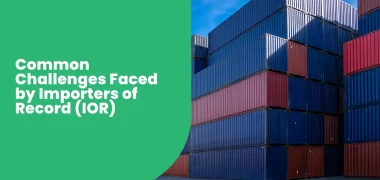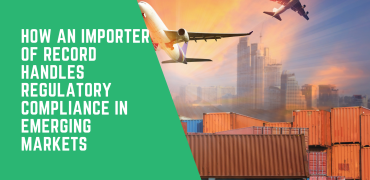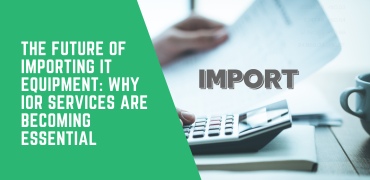Navigating the complexities of international trade can be a daunting task for any business, and the role of the Importer of Record (IOR) is particularly challenging. The IOR is responsible for ensuring that imported goods comply with all local laws and regulations, handling documentation, paying duties and taxes, and managing customs clearance. Given the breadth of these responsibilities, IORs face numerous challenges that can impact the efficiency and success of global trade operations. In this blog post, we will explore some of the common challenges faced by Importers of Record and offer insights into how these challenges can be managed effectively.
1. Regulatory Compliance
Challenge: Ensuring compliance with the import regulations of different countries is one of the primary challenges for IORs. Regulations vary widely from one country to another and are often complex and subject to frequent changes.
Solution: To address this challenge, IORs must maintain a thorough understanding of the regulatory environment in each country they operate in. This involves continuous monitoring of regulatory updates, investing in training for compliance teams, and leveraging the expertise of customs brokers and legal advisors.
2. Documentation and Paperwork
Challenge: The import process involves extensive documentation, including invoices, bills of lading, certificates of origin, and more. Errors or omissions in paperwork can lead to delays, fines, and even shipment rejections.
Solution: Implementing a robust document management system can help streamline the documentation process. Regular audits and quality checks can ensure accuracy, and digital tools can automate much of the paperwork, reducing the risk of human error.
3. Customs Clearance Delays
Challenge: Delays in customs clearance can disrupt supply chains and lead to increased costs. These delays can be caused by incomplete documentation, non-compliance with regulations, or issues during inspections.
Solution: To minimize delays, IORs should ensure all documentation is complete and accurate before shipment. Building strong relationships with customs officials and staying informed about local customs procedures can also help expedite the clearance process.
4. Cost Management
Challenge: Managing the costs associated with importing, such as duties, taxes, shipping fees, and storage costs, is a significant challenge. Unexpected expenses can quickly erode profit margins.
Solution: Accurate cost forecasting and budgeting are essential. IORs should negotiate favorable terms with logistics providers and consider using duty drawback programs and other cost-saving measures. Regular financial reviews can help identify and address cost overruns.
5. Risk Mitigation
Challenge: The import process is fraught with risks, including regulatory non-compliance, shipment delays, damage or loss of goods, and political instability in destination countries.
Solution: A comprehensive risk management strategy is vital. This should include insurance coverage for shipments, diversification of suppliers and shipping routes, and contingency planning for various scenarios. Regular risk assessments can help identify potential issues before they become critical problems.
6. Technology Integration
Challenge: Integrating technology into the import process can be challenging, particularly for IORs managing imports across multiple regions with different systems and standards.
Solution: Investing in modern technology solutions such as Enterprise Resource Planning (ERP) systems, Transportation Management Systems (TMS), and customs compliance software can streamline operations. Ensuring that these systems are compatible and can communicate with each other is crucial for seamless integration.
7. Supply Chain Coordination
Challenge: Coordinating with various stakeholders in the supply chain, including suppliers, logistics providers, and customs officials, can be complex and time-consuming.
Solution: Effective communication and collaboration tools are essential for supply chain coordination. Establishing clear protocols and using project management software can help keep all parties aligned and ensure timely information sharing.
8. Geographic and Market-Specific Challenges
Challenge: Each market has its own unique challenges, including cultural differences, local regulations, and infrastructure limitations.
Solution: IORs should develop market-specific strategies and leverage local expertise. Partnering with local agents or consultants can provide valuable insights and help navigate market-specific challenges effectively.
9. Staying Updated with Regulatory Changes
Challenge: Regulatory landscapes are constantly evolving, and staying updated with these changes is a continuous challenge for IORs.
Solution: Subscribing to industry newsletters, joining trade associations, and participating in webinars and training sessions can help IORs stay informed about regulatory changes. Additionally, maintaining strong relationships with regulatory bodies can provide early warnings about upcoming changes.
10. Conclusion
The role of an Importer of Record is fraught with challenges, but with the right strategies and tools, these challenges can be effectively managed. By focusing on regulatory compliance, documentation accuracy, efficient customs clearance, cost management, risk mitigation, technology integration, supply chain coordination, market-specific strategies, and staying updated with regulatory changes, IORs can ensure smooth and efficient import operations.
Addressing these challenges proactively not only minimizes risks but also enhances the efficiency and reliability of global trade operations, ultimately contributing to the success and growth of the business.




